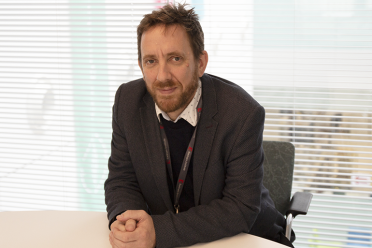Decoding Living Systems - our strategy to understand and protect life on Earth
At the Earlham Institute, we’re building a future where the biology of any organism can be understood by analysing its genome.
At the Earlham Institute, we’re building a future where the biology of any organism can be understood by analysing its genome. Guided by our new strategy, we’re helping to define the era of data-intensive life science research and accelerate the breakthroughs that will make this future a reality.
Life science research has undergone a revolution in recent decades. The major driver behind this change has been the ability to use computational approaches to answer biological questions.
The theory of evolution gave us an explanation for how life in all its forms came to be so astoundingly beautiful and diverse. Discovering the structure of DNA revealed the mechanisms that power this process of change.
Today, we’re working to build vast libraries containing each letter of the DNA code for every single organism on the planet. Not only that, we are gradually understanding the role of each letter, learning what happens if it’s changed, and starting to decode the complex interplay between different organisms’ DNA and their environments.
In short, we’re working towards a point where biology can be predicted by analysing the genome.

Our mission is to decode the scale and complexity of living systems so we can understand, benefit from, and protect life on Earth. In order to achieve this mission, I’m proud to launch our new organisational strategy.
Across carefully-chosen thematic areas, we have developed a strategy that I believe will accelerate life science research, deliver global societal impact, and help define the era of data-intensive biological research.
We are bridging the gap between biology and computer sciences, ensuring we can overcome challenges of scale and sensitivity as the volume and complexity of data increases. Through pioneering research projects, partnerships, training and community engagement, we will spearhead the use of genomics to advance bioscience research and innovation in the UK.
Our scientists are constantly creating, adapting, and perfecting in order to help maintain the pace of discovery, enabling researchers to answer questions in a range of scientific fields. From new methodologies and bespoke approaches to the hardware and software needed to tackle intractable problems, Earlham scientists will innovate and collaborate to keep us at the cutting edge.
We are renowned for studying complex species, environments, and biological questions - revealing insights into the basic building blocks of life, the interaction of organisms and environments, and how we can harness this in the future. We will help to shape the field of systems genomics while placing genes in the context of pathways and networks, helping us to understand how traits emerge from the complex interplay between genetic and non-genetic factors.
Pioneering research at the Earlham Institute is addressing the biggest challenges facing humanity, from climate change and food security to human health and wellbeing. We will bring our unique blend of science, expertise and infrastructure to the table, working with national and international partners to deliver global impact.
Interdisciplinary research is intrinsically a team activity. Our success relies on each individual experiencing an environment where they feel able to meaningfully contribute and connect to their work, colleagues, and the wider mission of the Institute. We are committed to building an organisational culture that is welcoming, respectful and inclusive, and where each person can access the training and support they need to reach their potential.

Today, the Institute is bringing together multi-disciplinary expertise in the life sciences with engineering, computational science, and biotechnology, along with world-class research infrastructure.

The Earlham Institute was established as a national facility to promote the use of genomics to advance bioscience research and innovation in the UK, providing support to both academic and industrial investigators.
Today, the Institute is bringing together multi-disciplinary expertise in the life sciences with engineering, computational science, and biotechnology, along with world-class research infrastructure.
Through our research, innovation, training and collaborations, we have helped the bioscience community - and those connected to it - to realise the potential of genomics.
It’s an incredibly exciting time to be involved in this work. Sequencing has now become a totally enabling technology for life science research and is starting to be applied to research questions across the biological sciences.
Through our new strategy, we will ensure the Earlham Institute maintains its position at the forefront of the data-driven science revolution.
Professor Neil Hall, Director
We are building a future where the biology of any organism can be understood by analysing its genome.
To achieve our mission, we have set out strategic research themes to accelerate life science research, deliver global societal impact, and put the Earlham Institute at the forefront of advancing knowledge in the era of data-intensive biological research.
The Earlham Institute can only achieve its objectives if individuals have the right environment, opportunities, and encouragement to grow and develop. Every member of staff and every student has a role to play, which is why our culture is one of the most valuable assets we have.
We are proud to attract talented scientists from all over the world, who bring with them vast experience in genomics, bioinformatics and scientific computing. Led by expert group leaders, our research groups are at the forefront in modern life sciences.